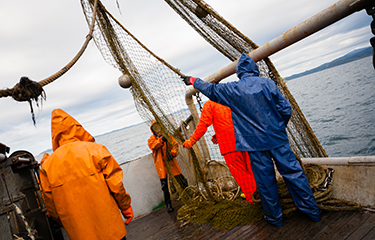NOAA Fisheries extended the deadline to evaluate applications from nations seeking to prove their fishing practices meet U.S. standards for marine mammal bycatch.
Nations wishing to send wild-caught seafood products to the U.S. need a comparability finding for commercial fishing operations. Provisions contained within the Marine Mammal Protection Act (MMPA) require fisheries outside the U.S. to meet the U.S. standards on conserving marine mammals.
Nations have run afoul of the MMPA in the past, and were subsequently slapped with import bans by the U.S. Court of International Trade. In December 2022, New Zealand was hit with an import ban on nine species of seafood – snapper, terakihi, spotted dogfish, trevally, warehou, hoki, barracouta, mullet, and gurnard derived from New Zealand’s West Coast North Island multi-species set-net and trawl fisheries. New Zealand initially had a comparability finding, but a court ruling overturned NOAA’s findings.
Now, NOAA said it needs more time to review applications from nations seeking comparability findings for commercial fisheries.
“NOAA Fisheries is reviewing applications from more than 130 nations representing more than 2,500 exempt and export fisheries,” it said.
On 20 October, 2022, NOAA issued a final rule for a one-year extension on all comparability findings. That year is on top of an earlier extension NOAA Fisheries issued due to the pandemic.
Now, NOAA said it needs another year to complete its rulemaking.
“NOAA Fisheries needs additional time to review and evaluate these applications, correspond with nations, make its final determination, and notify nations of its findings,” NOAA Fisheries said. “With this extension, nations will have until 31 December, 2023, to receive a comparability finding for their commercial fishing operations in order to export fish and fish products to the United States.”
According to NOAA, “no further action is required” from nations that have already submitted an application.
“NOAA Fisheries will continue working with its international trading partners to ensure they come into compliance with the MMPA import provisions,” it said.
Photo courtesy of DoublePHOTO studio/Shutterstock







